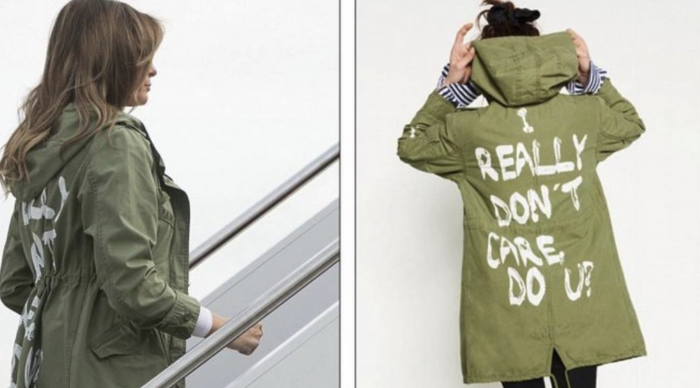“Stigmatise those who let people die, not those who struggle to live.” ~ Sarah Kendzior
Now that the United States Department of Agriculture is launching a pilot program for recipients of the Supplemental Nutrition Assistance Program, or SNAP, to use their benefits to buy groceries online and get them delivered to their homes, the uproar about “welfare moochers” can’t be far behind.
I can hear it now: How lazy do they have to be to get their food delivered on the taxpayer’s dime?
There has never been a finer example of pretending a program is designed to help the poor—in this case, make food more accessible—when the real aim is to open up the $63 billion dollar SNAP market and create new revenue streams for businesses. Amazon stands to make (another) fortune from SNAP subsidies.
The administration’s concurrent drive to decimate social services, spike defense spending, and gift the wealthiest Americans with a hefty tax cut generates plenty of criticism. Deep cuts to food stamps, housing assistance, Medicaid, and college student loans would be devastating to the most vulnerable Americans.
But detractors are fighting the wrong battle. Trump isn’t against welfare; he’s only against welfare to actual poor people. He’s perfectly happy to disburse free, no-strings-attached, government money to corporate giants.
Conservative pundits who favor cutting social services—ostensibly to unburden the taxpayers who fund them—show a breathtaking ignorance of how these cuts would affect all of us, not just those in need.
Here’s the reality: funding to help poor and working families translates into capital and profit for small businesses, nursing homes, medical clinics, real estate owners, banks, and food manufacturers. Poverty reduction is an economic engine, helping to create jobs and keeping many businesses afloat. And propelling some businesses—hello, Walmart—into stratospheric wealth.
Food stamps/SNAP benefits, for example, pay over $63 billion directly to grocery stores every year. (Walmart alone receives almost 18 percent of that.) How? Because food stamps began as a subsidy to failing businesses during the Great Depression. Grocers and food manufacturers were closing because people simply couldn’t afford to buy food. Under President Franklin Roosevelt, the federal government paid the grocers, and hungry people got the food. It helped drive the economic recovery.
Today, food stamps are the profit margin for many smaller stores and chain groceries in working-class neighborhoods. What will happen to local markets when those funds are slashed? More closures, more layoffs, more food deserts, more communities in decline.
This part of the equation—that the federal handout actually goes directly into the pockets of businesses—is generally left out of the conversation. It’s far easier and far more effective to hurl insults at the individual recipients—especially when so many of them are black and brown. We’re proud to say that small businesses are the backbone of the American economy. But the minimum-wage workers who keep them afloat are somehow depicted as lazy, entitled welfare thieves.
The stats vary by state, but according to the Center on Budget and Policy Priorities, the national numbers look like this:
>> 68 percent of SNAP participants—more than two-thirds—are in families with children.
>> Almost one-third are in families with members who are elderly or have disabilities.
>> More than 44 percent are families where at least one adult is working, but not earning enough to feed their kids.
>> Moody’s Analytics estimates that $1 in SNAP benefits generates $1.70 in economic activity.
Likewise, cuts to Medicaid will certainly accomplish the goal of reducing the number of people receiving services—and simultaneously cut the operating capital for many nursing homes, rehab centers, and medical clinics. Since the likely increase in suffering and death doesn’t seem to gain any traction, let’s ask this instead: How many skilled medical staff, CNAs, lab techs, cafeteria workers, and janitors will be put out of work? How many insurance coders and admin staff will be collecting unemployment?
The real estate industry will be feeling a hard pinch if Section 8 housing vouchers are reduced. HUD pays out $30 billion in subsidies directly to property owners and managers every year.
The current trend of blaming poor people for the deficit and every other economic problem is short-sighted at best, since gutting these poverty reduction programs will impact services and businesses for years to come.
And don’t overlook the racial underpinnings. In actual numbers, more white people receive federal assistance than any other group. But people of color experience poverty (and receive help) at a higher rate than whites, and are disproportionately affected by changes in federal programs.
By denying that discrimination still exists, and by constantly linking “black” with “poor,” we’ve been fed a steady diet of narratives and images reinforcing the idea that for some people—black people—poverty is just what we deserve. The stereotype of the welfare queen—always black, loud, and driving a Cadillac—is burned into our collective memory bank.
But like all racist paradigms, it’s far from the truth. In reality, the most egregious, widespread, and costly cases of welfare fraud are perpetrated by pharmacists, dentists, and medical providers, who double and triple bill the government for services, file claims for services they never provided, or launder and hide their looted money by using shell companies and paying kickbacks.
Every year, the Office of the Inspector General investigates and prosecutes tens of millions of dollars in fraud by retailers and healthcare providers who grift not just their patients and customers, but the American treasury as well.
In the View from Flyover Country, author Sarah Kendzior reminds us that “poverty is neither a crime nor a character flaw. Stigmatise those who let people die, not those who struggle to live.”
As Americans, we should ask ourselves if we’re really ready to wreak havoc on our own economy just to punish the “undeserving” poor.
As human beings, we should ask ourselves how we ended up believing that poverty is a punishable offense.


 Share on bsky
Share on bsky





Read 1 comment and reply